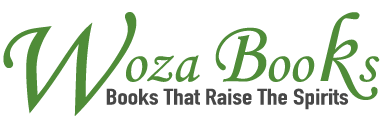FRANCES AND ME
Holocaust survivor Frances Fabri was born on September 22, 1929 in Bekes, Hungary. When the Nazis invaded Bekes in 1944, Frances, then 14 years old, was transported with her parents to Auschwitz. She never saw her father again. She and her mother conspired to save each other’s lives throughout their internment in the concentration camp and, miraculously, were both still alive when the war ended. Frances and her mother emigrated to the U.S. in 1956 along with Frances’s husband, Emery Fabri (whom she later divorced). Frances spearheaded efforts in the U.S. to begin compiling oral histories of Holocaust survivors. She founded the Holocaust Center of Northern California and she designed the protocol for interviewing survivors that is used to this day. When she died in 2006, she left her estate to her friend Matthew McKay. Wishing to use the inheritance from Frances to honor her memory, McKay and his wife Judy, in collaboration with publisher Tom Southern, established the Frances Fabri Literary Prize.
The Fabri Prize seeks to “discover deserving but underappreciated works of fiction and have them published.” The prize winner each year receives a standard publishing contract and a modest marketing budget. Originally administered by Southern’s Boaz Publishing, the Fabri Prize has recently moved to Charlie Winton’s Counterpoint Press in Berkeley, California. During the move, the prize was on a brief hiatus and no award was made in 2011. In 2010 the Fabri Prize was awarded to Memories from Cherry Harvest (forthcoming July 2012) by Amy Wachspress. That’s me.
When I received the call informing me that I had won the Fabri Prize, I had no idea who Frances was and no way of foreseeing the extraordinary journey ahead. When Cherry Harvest won the prize, it was the first time that a novel with a Holocaust theme (which is a core element of the book) had ever won the Fabri Prize, since this was not a specific criterion for winning the award. But the intersection of Frances’s poignant life experience and the part one narrative section of the four-part Cherry Harvest is nothing short of a manifestation of a remarkable soul connection between Frances and me. Part one of Cherry Harvest is loosely based on the true story of my cousins who suffered in the Holocaust in Occupied France. One of those cousins was in Auschwitz at the same time that Frances and her mother were there. I do not believe this synchronicity is coincidental.
I have spent over twenty years writing Cherry Harvest, and the opportunity to see it in print feels to me like a miracle. When I read about Frances for the first time, I was astonished to discover that it had been her deepest desire to preserve the stories of those who had survived the Holocaust so that their experience would be remembered. This impulse to remember was one of the reasons why I wrote my book. If I was forced to summarize Cherry Harvest in one word, that word would be “memory.” During the weeks and months, which have evolved into years, that I have been working with the editors and production team at Counterpoint to improve Cherry Harvest through extensive rewrites and edits, I began to feel the distinct presence of Frances’s spirit, walking with me on my daily walk, sitting on my shoulder late at night as I bent over my computer keyboard, listening to my voice as I spoke dialogue out loud to hear how it sounded. I now think of her as my spirit guide in this journey. She is by my side, cheering me on. Her life’s work was all about remembering the Holocaust through the stories that emerged from it. I hope my life’s work will fulfill her wishes and advance her vision.
© 2012 Amy Wachspress


